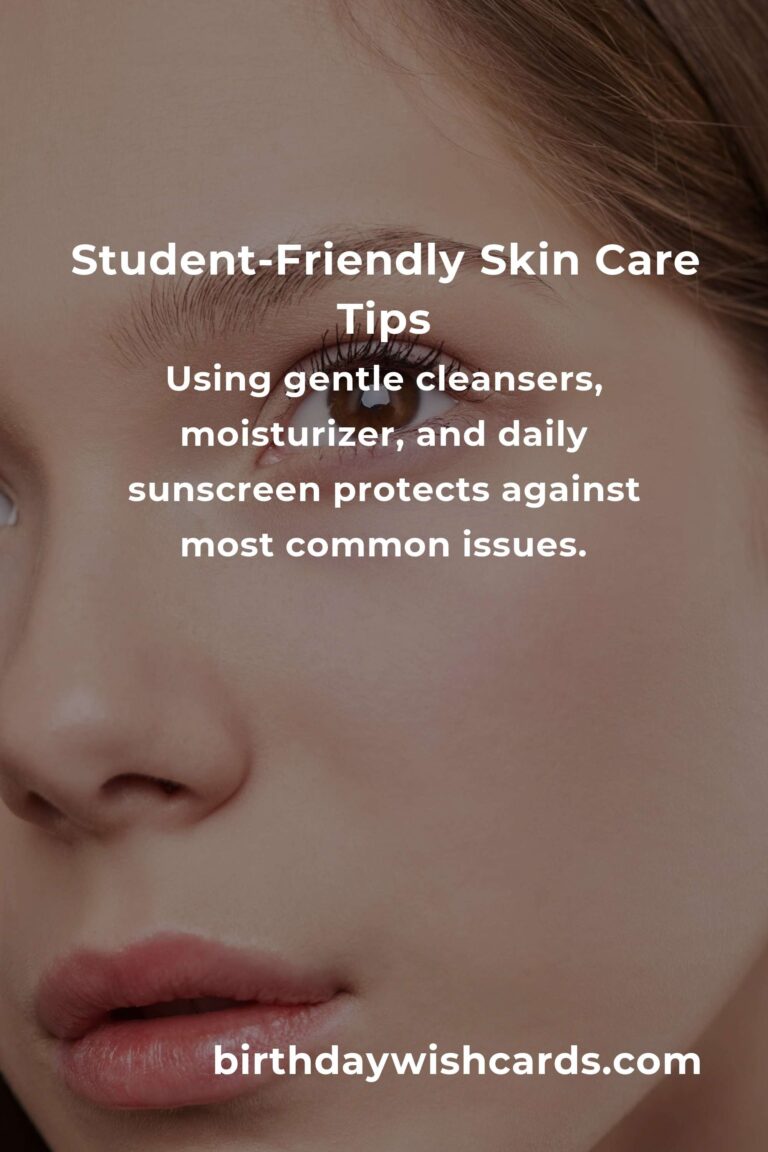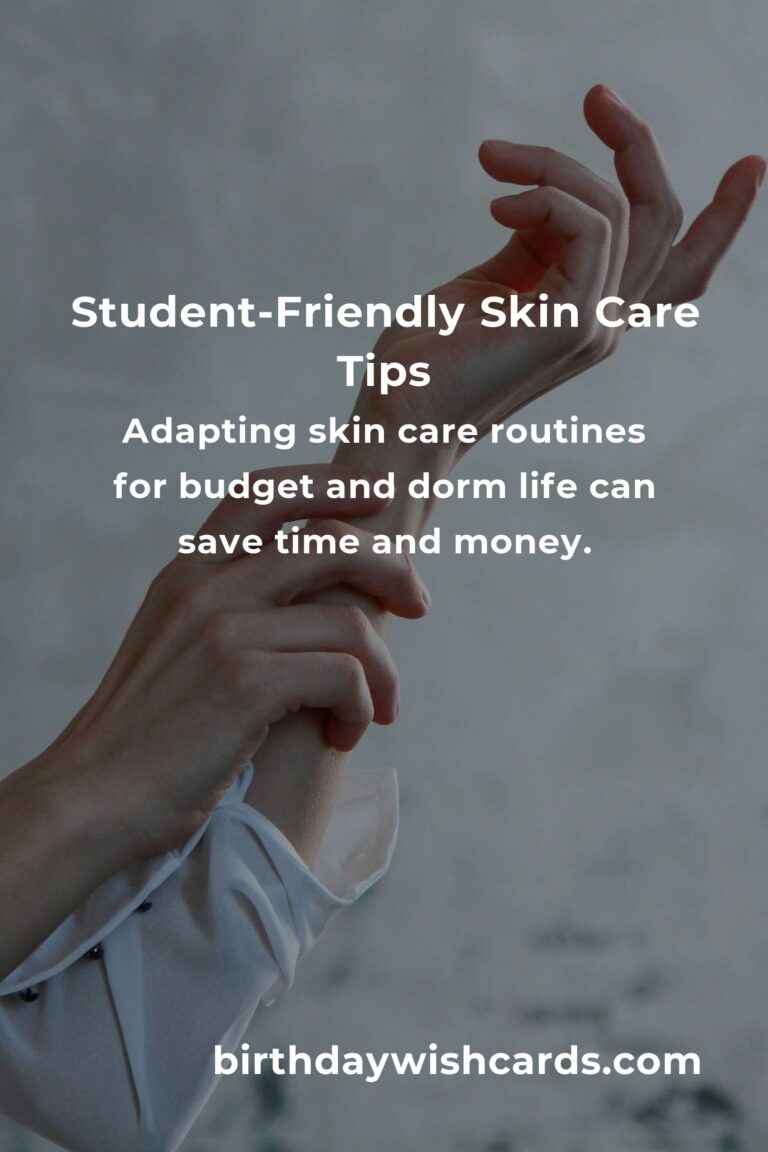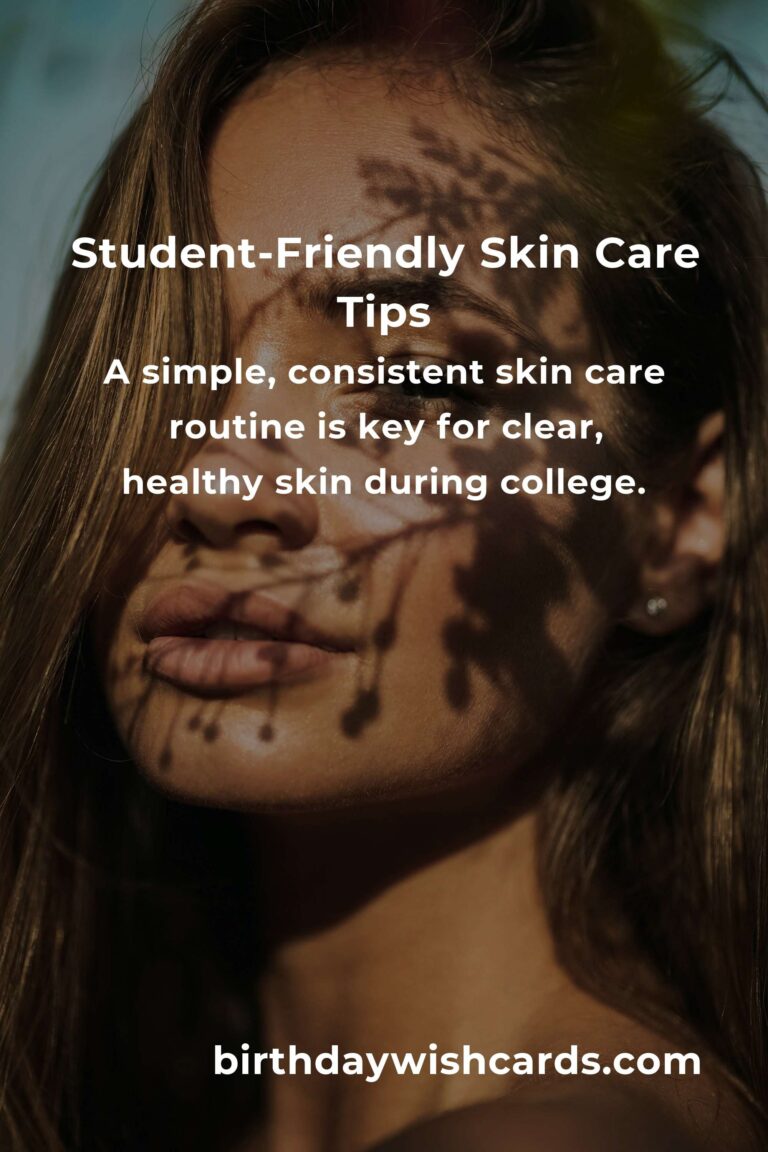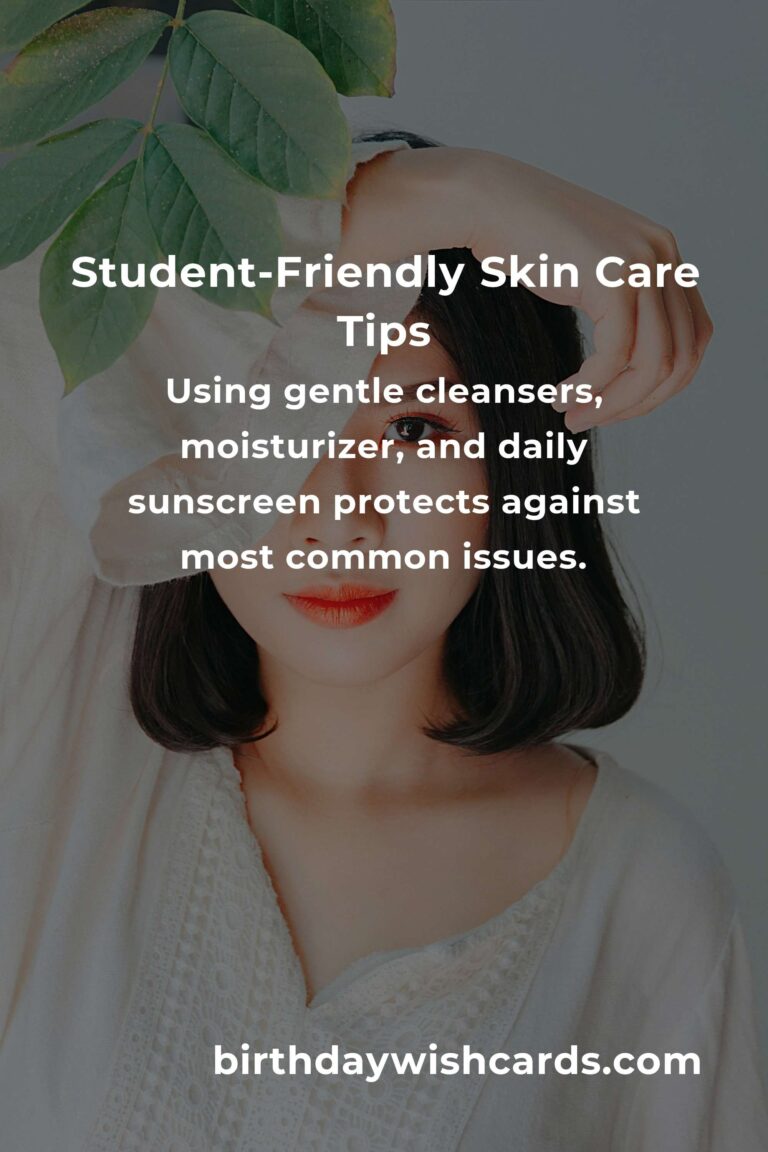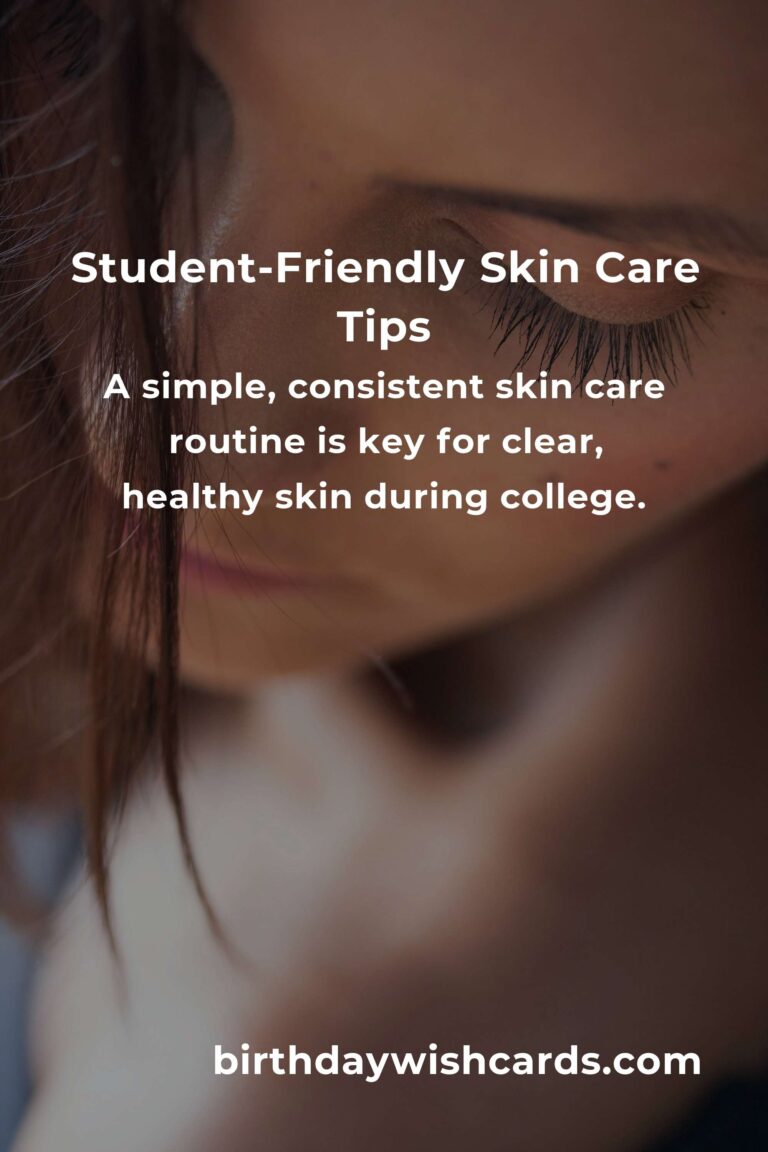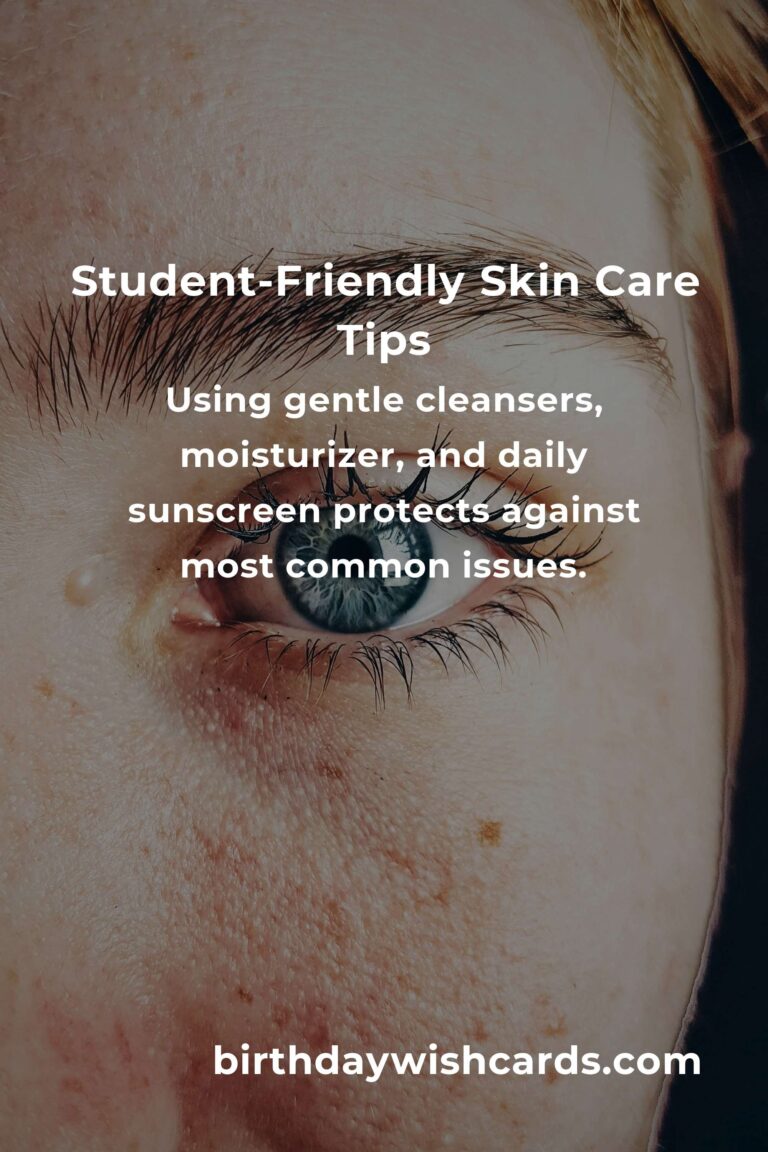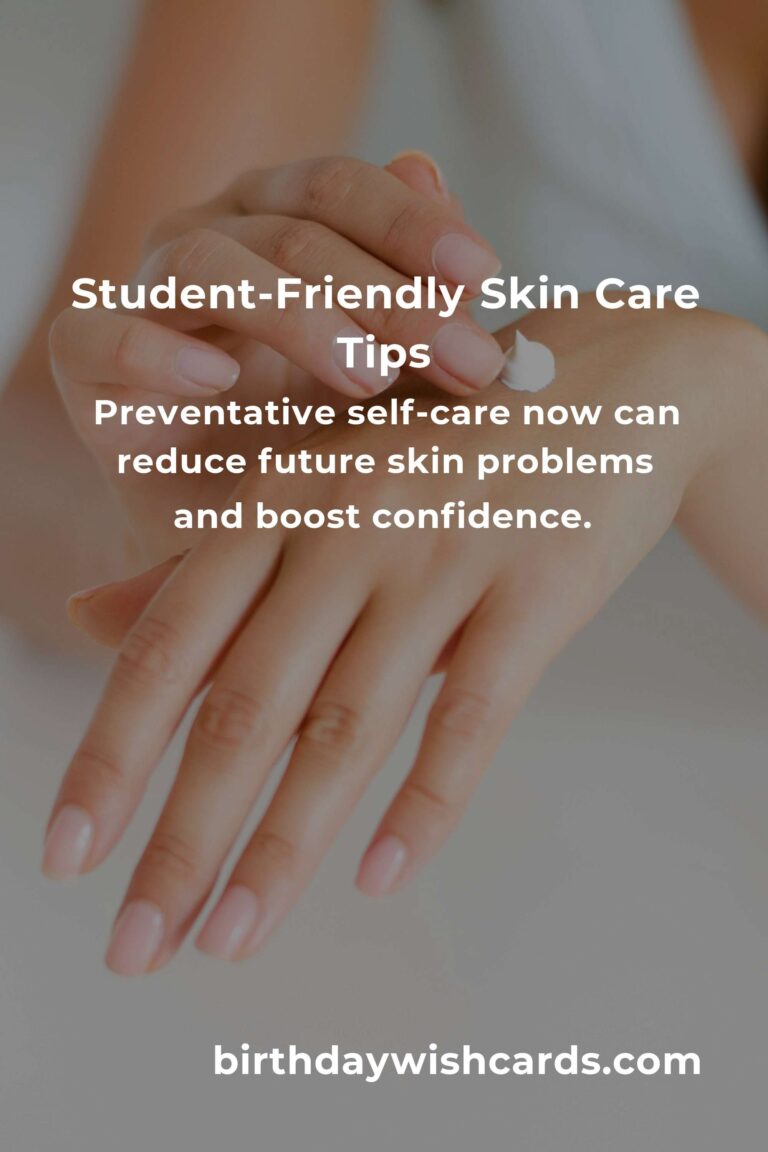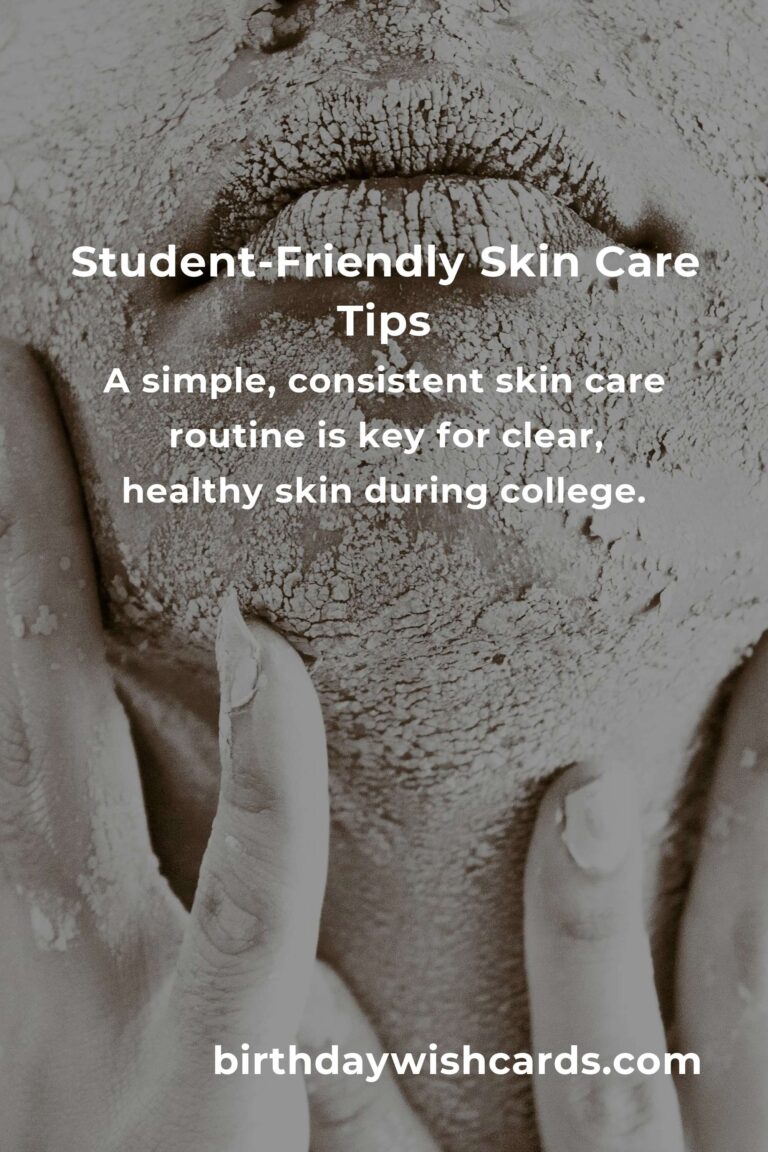
College is an exciting time filled with new adventures, personal growth, and plenty of late nights. But in the midst of studying for exams, attending social events, and juggling responsibilities, your skin can often be neglected. Developing a simple, effective skin care routine is crucial to maintaining healthy, glowing skin throughout your college years—and beyond. This comprehensive guide for 2025 provides easy, affordable, and science-backed tips tailored for college students living busy lifestyles.
Why Skin Care Matters for College Students
Your skin is your body’s largest organ, protecting you from environmental stressors such as pollution, UV rays, and bacteria. During college, your skin may face new challenges: stress, lack of sleep, erratic eating habits, increased exposure to pollution, and the temptation to skip self-care. These factors can lead to acne, dullness, and premature aging. By adopting the right skin care habits, you can prevent future skin problems, boost your confidence, and focus better on your academic and social life.
Core Skin Care Principles for Students
Let’s break down what young adults really need for clear, resilient skin:
- Consistency: A simple routine you can stick to daily is better than an elaborate one you’ll abandon.
- Affordability: Student budgets are tight, so focus on affordable and multifunctional products.
- Prevention: It’s easier to prevent skin issues than to treat them later on.
- Customization: Adjust your regimen based on your skin’s changing needs and lifestyle.
Identifying Your Skin Type
Before building your routine, identify your skin type. Common categories are:
- Normal: Balanced, not too oily or dry
- Oily: Shiny, prone to acne and enlarged pores
- Dry: Flaky, rough, may feel tight
- Combination: Oily in the T-zone, drier on cheeks
- Sensitive: Reacts easily, may be red or stings
Cleanse your face and observe how your skin feels an hour later. This will help you choose the right products.
The Must-Have Skin Care Routine for 2025
Keep it simple! Here’s a routine that works for all skin types and busy college schedules:
1. Cleansing
Cleansing removes dirt, excess oil, and pollutants that build up throughout the day. Use a gentle cleanser—preferably one with minimal fragrance and no harsh sulfates—to prevent over-drying or irritation. Cleanse your face twice a day, morning and night.
2. Moisturizing
Even oily skin needs hydration. Choose a lightweight, non-comedogenic moisturizer that won’t clog pores. For dry skin, look for richer creams with ceramides or hyaluronic acid. Apply after cleansing to lock in moisture.
3. Sun Protection
UV rays cause premature aging, dark spots, and skin cancer risk. Wear SPF 30+ daily, even on cloudy days. Use a broad-spectrum, oil-free sunscreen to avoid breakouts. Many moisturizers now come with sun protection included for convenience.
4. Targeted Treatments
If you struggle with specific skin issues like acne, hyperpigmentation, or sensitivity, consider adding targeted treatments:
- Acne: Use spot treatments with benzoyl peroxide or salicylic acid.
- Hyperpigmentation: Niacinamide or vitamin C serums can help even out skin tone.
- Sensitivity: Stick to fragrance-free options and ingredients like centella asiatica or oat extract.
Budget-Friendly Skin Care Hacks
Saving money doesn’t mean sacrificing your skin. Try these student-approved strategies:
- Multitaskers: Look for products that combine functions (moisturizer + SPF, cleanser + makeup remover).
- Drugstore Brands: Many affordable brands offer dermatologist-recommended formulas.
- DIY Masks: Oats, honey, and yogurt can be used for gentle, natural face masks.
- Avoid Unnecessary Steps: Fancy toners, serums, and masks aren’t essential if you’re on a tight budget.
Managing College Lifestyle Factors that Affect Your Skin
College life comes with unique challenges. Here’s how to manage their impact on your skin:
Stress
Finals, assignments, part-time jobs, and social pressures can trigger flare-ups. Practice stress management techniques like meditation, yoga, or regular exercise. Even five minutes of deep breathing can help!
Sleep
All-nighters are common, but your skin repairs itself when you sleep. Aim for 7-9 hours per night and keep a regular sleep schedule to reduce dark circles and breakouts.
Diet
Convenience food can sabotage your complexion. Drink plenty of water and eat fruits, vegetables, nuts, and whole grains. Omega-3-rich foods (like salmon and walnuts) benefit your skin too.
Hygiene
Change your pillowcases and sheets regularly to prevent acne-causing bacteria. Sanitize your phone screen and avoid touching your face during the day.
Top Trends in 2025 Skin Care for Students
Stay current with these trends shaping how college students care for their skin in 2025:
- Sustainable Products: Eco-friendly packaging and cruelty-free skincare are more popular than ever.
- Minimalist Routines: Less is more; focus on quality ingredients over complicated regimens.
- Tech-Driven Tools: LED masks, skin-analyzing apps, and smart devices help monitor and improve skin health.
- Microbiome-Friendly Formulas: Probiotic skincare supports your skin’s natural barrier and is ideal for stressed-out skin.
Common Skin Problems & Solutions for College Students
Let’s address frequent issues you may encounter and how to handle them effectively.
Acne Breakouts
Causes: Stress, hormones, poor hygiene, diet.
Prevention & Solutions:
- Cleanse twice daily and after sweating.
- Use non-comedogenic makeup and skincare.
- Avoid picking or popping pimples to prevent scarring.
- Consider spot treatments or over-the-counter retinoids for stubborn cases.
Dry, Flaky Skin
Causes: Cold weather, dehydration, harsh cleansers.
Prevention & Solutions:
- Switch to a hydrating cleanser and thicker moisturizer.
- Avoid hot water and long showers.
- Add a humidifier to your dorm room if possible.
Oily, Shiny Skin
Causes: Hormones, heat, over-cleansing.
Prevention & Solutions:
- Use a foaming or gel cleanser that controls oil.
- Carry blotting papers during the day.
- Moisturize—skipping this can make oiliness worse!
Dark Circles & Puffiness
Causes: Lack of sleep, genetics, dehydration.
Prevention & Solutions:
- Prioritize sleep whenever possible.
- Place cold spoons or chilled tea bags under eyes for quick relief.
- Use a lightweight eye cream with caffeine.
How to Handle Skin Care in Shared or Dorm Bathrooms
College dorms often mean sharing space. Protect your skin and products with these tips:
- Keep products in a caddy and out of direct sunlight or heat.
- Label your items to avoid mix-ups.
- Choose solid-bars or multitaskers for easy transport.
- Use disposable cotton pads and q-tips for hygiene.
Shopping List: Best Products for Students (2025 Edition)
Here’s a simple, effective starter kit with options for every budget:
- Cleanser: CeraVe Hydrating Cleanser, Simple Kind to Skin
- Moisturizer: Neutrogena Hydro Boost, Vanicream Moisturizing Cream
- Sunscreen: La Roche-Posay Anthelios Melt-in Milk SPF 60, Supergoop! Unseen Sunscreen SPF 40
- Treatments: The Ordinary Niacinamide 10% + Zinc 1%, Differin Gel (adapalene)
Remember: Choose products that fit your skin type and any sensitivities.
Top Skin Care Myths Busted
- Myth: Expensive products always work better.
Fact: Affordable, drugstore formulas can be just as effective as luxury brands. - Myth: Oily skin doesn’t need moisturizer.
Fact: All skin needs hydration—just use lightweight formulas. - Myth: Only wear sunscreen on sunny days.
Fact: UV damage can occur even when it’s cloudy or indoors near windows. - Myth: Natural products are always safer.
Fact: Even natural ingredients can cause irritation or allergies.
Frequently Asked Questions (FAQs)
1. Can I skip moisturizer if my skin is oily?
No—proper hydration prevents skin from overproducing oil. Choose a gel-based, non-comedogenic moisturizer.
2. Do I need to double cleanse?
Only if you wear heavy makeup or sunscreen. Otherwise, a single gentle cleanse is sufficient.
3. How can I treat sudden breakouts before an event?
Apply a pimple patch or spot treatment containing salicylic acid or benzoyl peroxide. Avoid touching or picking at the breakout.
4. Are face masks necessary?
Masks are optional. Focus on the basics first and use face masks as a supplement, not a substitute for daily care.
Conclusion: Your Path to Clear, Confident Skin in College
Skin care doesn’t have to be complicated or expensive. By following these tips and making self-care a priority, you’ll enjoy healthy, radiant skin no matter how hectic your college schedule gets. Build habits that protect your skin now and set the foundation for lifelong confidence and wellbeing. Here’s to your best skin in 2025 and beyond!
College students face unique skin challenges due to stress, erratic schedules, and new environments.
A simple, consistent skin care routine is key for clear, healthy skin during college.
Using gentle cleansers, moisturizer, and daily sunscreen protects against most common issues.
Adapting skin care routines for budget and dorm life can save time and money.
Preventative self-care now can reduce future skin problems and boost confidence.
#skincare #collegelife #healthyskin #studenttips #selfcare #2025trends



